Politics at Dhaka University—as I experienced it
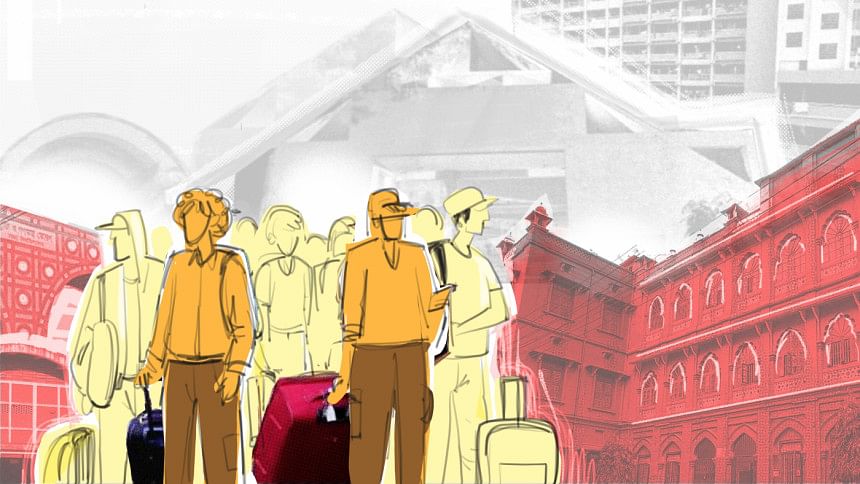
I remember nothing from my very first visit to Dhaka as a child. My next visit to the capital was as a twelfth-grader, and by then I'd heard a lot of things about the University of Dhaka (DU) from my relatives, teachers, and others, so I was eager to see the university. However, I left Dhaka without being able to see it. After doing pretty well for my SSC and then obtaining second position on the merit list for my HSC from Jashore board, I enroled in the Department of Finance and Banking at University of Dhaka in 1995.
After admission, I took it for granted that I would get a seat in the dormitory (or, hall). My academic results gave me further confidence to this end as well. But I was shocked to know that first-year students were not allowed to stay in the hall legally.
I was assigned to Surja Sen Hall but wasn't acquainted with anybody from there. Therefore, I began to stay with my cousin, who was placed in Jatir Janak Bangabandhu Sheikh Mujibur Rahman Hall. There were four beds in the room for eight students, including myself. Initially, I was quite satisfied with the new accommodation. The only problem (and a lesson, too) was that we (two overweight cousins) had to fit into one small bed. After some months, political unrest erupted in the country—and so did my suffering.
Because of the political turmoil, the hall administration became very strict. House tutors started checking the identity cards of students at the entry point to the hall. As an outsider in the hall, I could not show them my card and had to make up excuses along the lines of "I forgot to bring my card" or "I'm visiting a friend here to study with him." At times, I was entirely unable to enter the hall and would stay the night with my friends in other halls of DU.
I had to live in constant fear and panic, while also having to attend political rallies and programmes frequently. When I could not attend them due to academic pressures, I was scolded brutally. (Now I only feel relieved that I was not assaulted for violating their instructions!)
There were frequent raids in the hall, too. The police would arrest students on various grounds. As an outsider in the Jatir Janak Bangabandhu Sheikh Mujibur Rahman Hall, I was always anxious that I might be arrested. Being on the top floor, I could always sense an incoming raid before most others. I would wake up and try to go into hiding, usually in the bathrooms where the police didn't usually check. Another method of avoiding harassment was to go to the reading room, even in the dead of night.
I eventually applied for a seat in Surja Sen Hall and finally acquired one. There were two beds in the room, and a student had already been occupying the bed assigned to me. When I requested him to vacate my seat, he informed me that he would continue to stay there. He was a part-time journalist, now living abroad. On the other bed was a senior student leader who often hosted late-night gossip and political discussion sessions. Needless to say, my studies were seriously hampered. I stayed in that room for one year.
I eventually got a ground floor room with a single bed in the beginning of my third year. But I was the only general student in the hall with this facility at that time; of the other two occupants of single rooms, one was involved in politics and another was a part-time journalist. But my privilege was short-lived because, soon enough, I was forced to accommodate a politically connected student in my room. After one year of living with this person who lacked any etiquette, I applied for a better room and got one on the fourth floor. Before I had to encounter any political issues, I voluntarily allowed a first-year student to stay in my new room with me.
The cadres in our hall would lock the gate to force students to attend processions. During exams, we had to show our admit cards to the cadres at the hall gate. In order to dodge political participation, I would leave the hall in the very early morning, have breakfast somewhere, and go to the library first and then to class.
I stood second and first, respectively, in my BBA and MBA exams. But I did not have an environment in the hall that was conducive to studying well. I had to struggle constantly. I had to play hide-and-seek with the cadres. And the problems I faced could have ruined me. I could have become one of the spoiled political cadres. I could have turned into the mastermind of a torture cell. I could even have become a hooligan to get revenge on the cadres. I could have gone to any of these extremes, but I restrained myself keeping in mind my family's and society's expectations from me.
But every student was not and is not as sensible as I was. There is every possibility that they may fall into a political trap.
Over time, the situation at the DU dorms worsened because of the mismatch between the number of students and the available residential facilities. Many first-year students live in mass (gono) rooms, and some even reside on the balcony floors. It may be possible to live there, but it is difficult to study properly in these circumstances. After facing such problems in their first year, lots of students fail to perform well in exams. Some even fail and many drop out. The dreams of numerous students and their families fall flat on their faces.
The prevailing management system at the University of Dhaka's dormitories needs an overhaul. The first-year students come from different parts of the country and are not familiar with the capital. Hence, they must be prioritised when assigning seats at the residential halls. These are common practices at any good university globally. To ease up this process, the number of students being admitted to DU must be rationalised, as there are already enough public universities in the country.
As for politics, like in other sectors of the country, it has a role to play at the university, too. Politics shelters political cadres. It makes some student leaders rich, and helps some less qualified candidates to become teachers. Being politically involved also increases the probability of one becoming a vice chancellor, pro-vice chancellor, treasurer, dean, provost, proctor, house tutor, and more. It also assists many to get important positions outside the university. In a resource-constrained institution, politics works as a means for one to get a piece of the pie. However, such distribution of benefits is a disincentive for scores of teachers who silently leave this university. Many do not come back after finishing their higher studies abroad; incurring a great loss for the country.
No government so far has shown adequate effort to solve the fundamental problems at the University of Dhaka. The issue of getting seats at residential halls, for instance, is left unresolved intentionally in order to make students subservient to political cadres. But once this problem is fixed, students can be less dependent on politics and have more room to be open-minded free thinkers. These students will be driven by reasoning and always challenge authority.
As is clear, a university with a lack of resources poses fewer threats to the position of authority. But it is not a scarcity of resources that keeps the problems unresolved; it is simply due to a lack of intention to solve these issues at all. We must realise that the image of students huddled together in gono rooms, on balconies, and sometimes even in mosques is a disgraceful one for a centennial university to display. It is also not commensurate with Bangladesh's pace of development.
Dr Md Main Uddin is professor and former chairman of the Department of Banking and Insurance at the University of Dhaka. He can be reached at [email protected]

 For all latest news, follow The Daily Star's Google News channel.
For all latest news, follow The Daily Star's Google News channel. 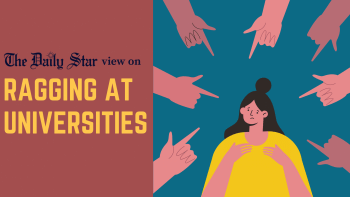
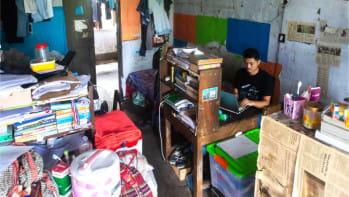
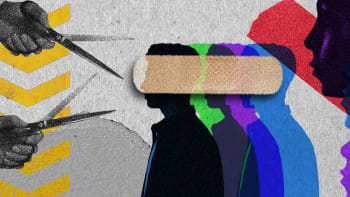

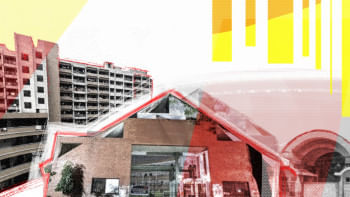
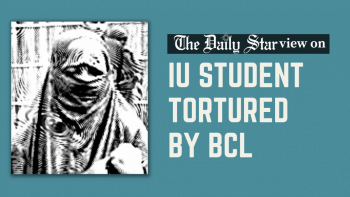



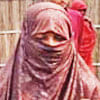


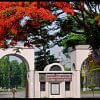


Comments